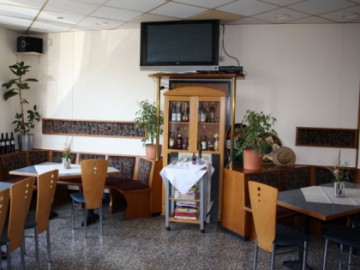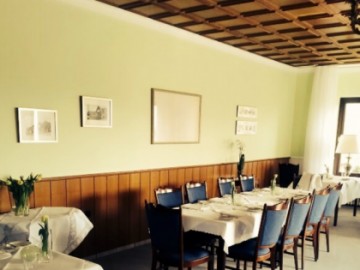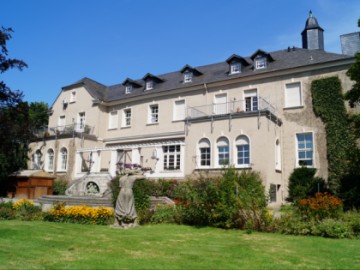Mülheim: Large Factories and Stores
Small and modest Mülheim is a city famous for industrialists and big factories. There are two institutes named after Max Planck, who was awarded Nobel Prize in Physics. A beautiful recreation area was developed on the Ruhr river. Each visitor is given a smart card in Aquarius water museum in the former water tower, with which you can run various multimedia exhibits.
See all
Restaurants

Dumptener Treff
Restaurant • Banquet room • Catering
+49 208 750607
Payment methods:

Handelshof
Restaurant • Hotel
Payment methods:

Hapa Haole
Family restaurant • Biergarten • Fast Food
+49 208 76825006
Payment methods:

Hoppeler
Restaurant • Biergarten • Hotel • Catering
+49 2054 18578
Payment methods:
All sights in MülheimSee all
Landmarks in the city Mülheim

Saarn Cistercian Monastery
Architectural Monuments • Museums and Exhibitions

Camera Obscura and Museum of Film Prehistory
Museums and Exhibitions

Styrum Castle
Castles, Fortresses and Palaces

The Villa of Josef Thyssen
Parks and recreation • Other places

Broich Castle
Museums and Exhibitions • Castles, Fortresses and Palaces

Bismarck Tower
Architectural Monuments
Nearby





 Castles, Fortresses and Palaces
Castles, Fortresses and Palaces
 Parks and recreation
Parks and recreation
 Museums and Exhibitions
Museums and Exhibitions
 Architectural Monuments
Architectural Monuments
 Other places
Other places